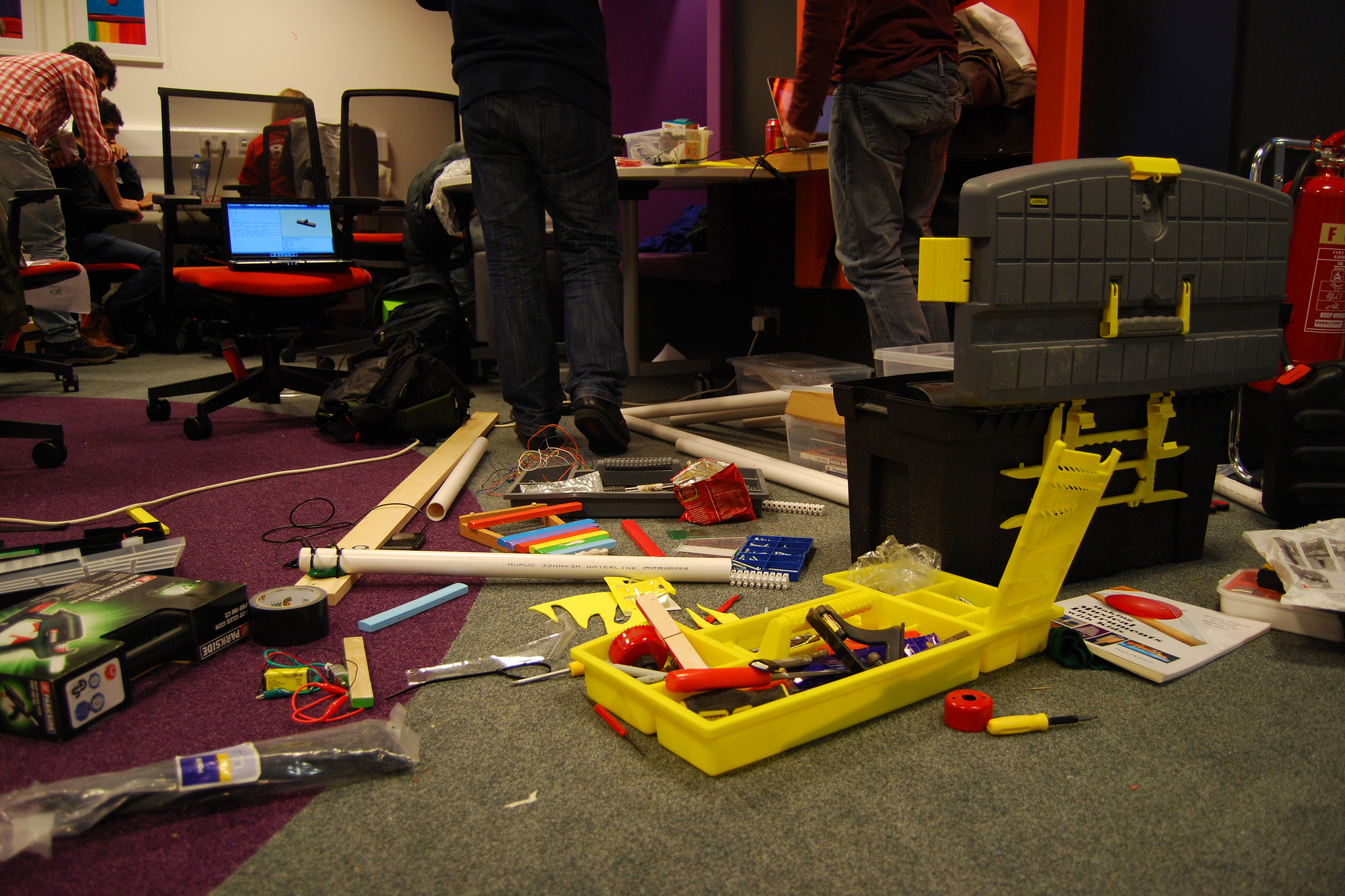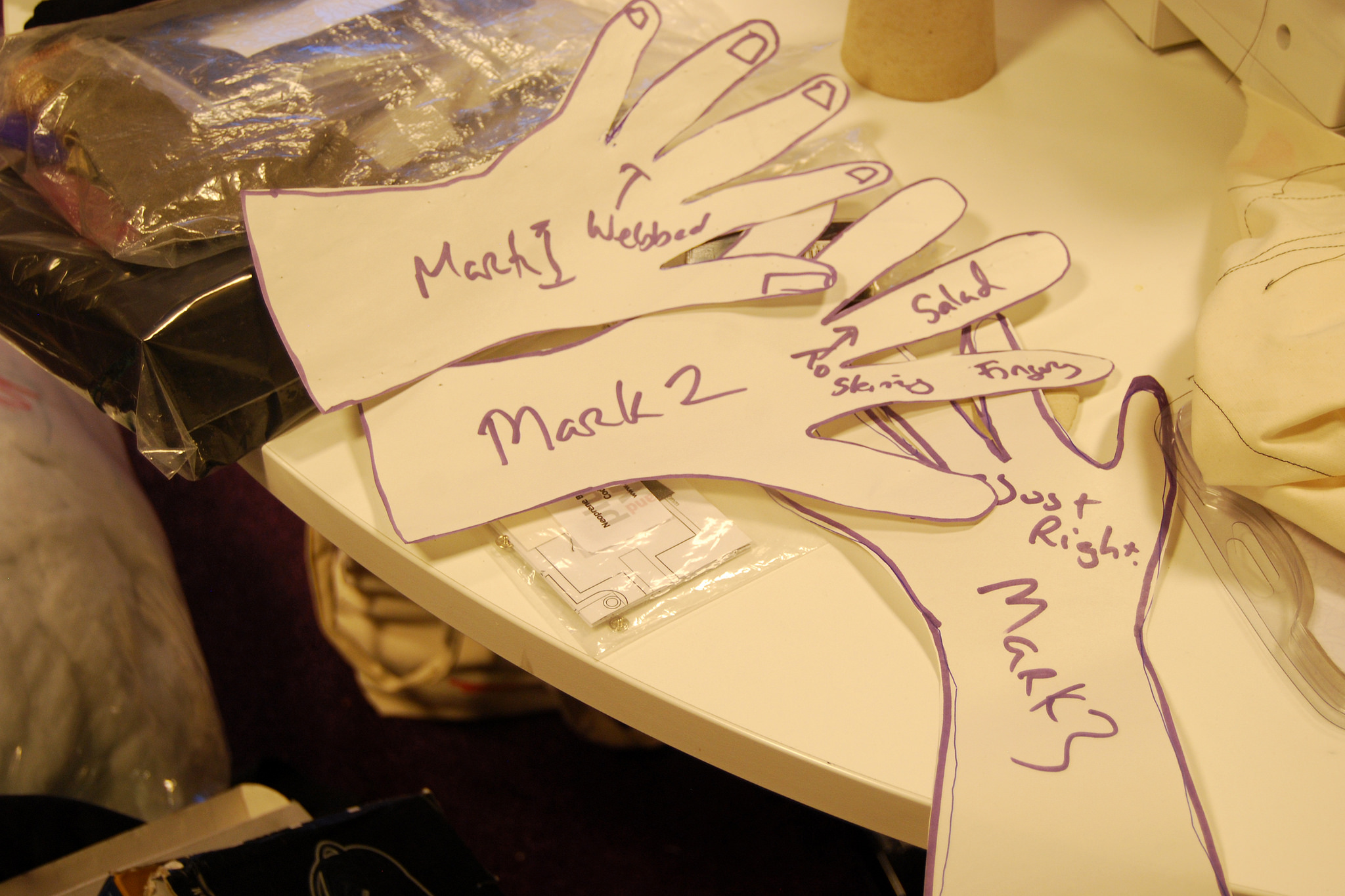Ultimaker 3D printers were on hand at Science Hack Day Dublin 2014, held in the Innovation Academy at University College Dublin's O'Brien Science Centre. Photo by Sandra Ní Dhubhthaigh and @pingulette
Science Hack Day Dublin, a 30-hour hackathon event, brought teams together to work on various hacks and projects at University College Dublin (UCD).
A door that sends you a picture of who is waiting outside and lets you admit them entry via your phone. A pair of trousers that lets you play drum solos on your legs. Texting gloves. A farm-safety system to alert if a child is nearby and could be at risk of injury from machinery.
Those were some of the innovative ‘hacks’ that scooped prizes at the third Science Hack Day Dublin at the weekend.
Creativity – and pizza – fuels Science Hack Day Dublin
The 30-hour session kicked off on Saturday at the University College Dublin Innovation Academy. Around 150 people took part in the free event, and the first step was for team leaders to pitch their ideas for ‘hacks’ or solutions to problems. Then participants with various talents got on board to design and make the hacks using materials people had brought in and a room full of Ultimaker 3D printers.
By Saturday evening, the ideas were coming to life, and technical challenges were becoming apparent in some cases. But with plenty of pizza and coffee to hand, teams worked through the night and by Sunday afternoon they were ready to describe their progress to the judging panel.

Science Hack Day Dublin participants brought in various materials to be used to bring their innovations to life. Photo by Sandra Ní Dhubhthaigh and @pingulette
Science Hack Day Dublin 2014 winners
Winners included a ‘concentration box’, where students have to solve chemical calculations to open the lock to a box and find a reward; a glove with an integrated keyboard for texting in the cold weather (or perhaps under the table at a meeting); ‘drum solo’ trousers; a keyboard-controlled xylophone; a system for gathering and mapping air quality data, and a sensor that can be worn inside a child’s wellington boot to send alerts to farmers if the child is near potentially hazardous farm machinery.
The overall winners hacked a doorbell-activated system called ‘Doorwatch’ that takes a photo of the visitor and sends it to the occupant’s smartphone, then gives them the option to open the door remotely. This could be useful for people who cannot hear the doorbell or are out and expecting a visitor or delivery.
UCD president Prof Andrew Deeks was on the judging panel and gave the overall winners their medals.
“UCD is pleased to host Science Hack Day, as the combination of science, technology, creativeness and innovation the competition promotes are strengths we cultivate in our own students,” he told Siliconrepublic.com.
“I am very impressed by the broad range of projects that the teams managed to complete in just 30 hours, and which (for the most part) work. Judging has proved to be the most difficult part of the day, due to the high standard of the projects, some of which have the potential to make significant impact.”
Event co-ordinator Dr David McKeown, a research engineer and lecturer at School of Mechanical and Materials Engineering, was delighted with how the whole weekend turned out.
“We have tried really hard to create a hackathon that anyone can feel part of, a hackathon is just plain fun,” he told Siliconrepublic.com.
“Once again, the teams have blown me away with their ingenuity, resourcefulness and most of all their friendliness. All weekend people have been working hard on extraordinary projects, but the atmosphere has remained relaxed and light hearted. We are lucky to have such a vibrant and diverse community of makers in Ireland.”
Science Hack Day Dublin was supported by EndNote, UCD Innovation Academy, UCD School of Mechanical and Materials Engineering, UCD College of Science, CarTrawler, Career Zoo and Engineers Week. You can see a full list to the projects on the Science Hack Day Dublin website.

The beginning of a glove with an integrated keyboard for texting in the cold weather emerges at Science Hack Day Dublin. Photo by Sandra Ní Dhubhthaigh and @pingulette